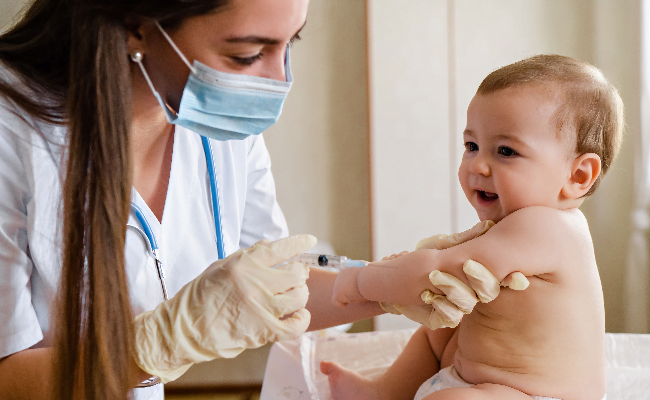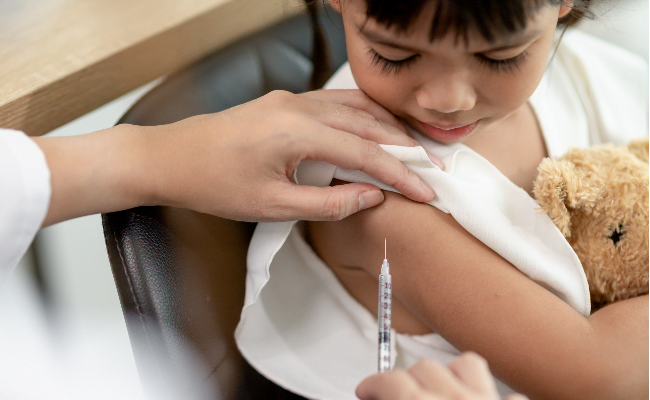Introduction
Every year, countless lives are saved due to the marvel of medical science which is immunization. The practice stands as a testament to human ingenuity, particularly when we reflect on the many diseases that have plagued humanity for centuries. But, what is the true importance of immunization? How does it fit into our larger global health picture, especially in an era where we have the World Health Organization (WHO) setting global standards? And, with so many myths floating around, what’s the reality?
How Immunizations Work
Immunizations and vaccines are like a training course for the immune system. They prepare the body to fight disease without exposing it to the actual disease symptoms. A vaccine introduces a less harmful part of the germ (or its imitation) to the body. The immune system then learns to recognize and combat the infection if exposed to it in the future.
It’s a brilliant use of the body’s natural defenses. Effective vaccines reduce the risks and spread of infectious diseases, making communities safer for everyone. This phenomenon, known as community immunity or herd immunity, ensures that even those who cannot be vaccinated, like severely disabled people, are protected. When a large percentage of a community is vaccinated, the spread of infectious disease is slowed, and everyone benefits.
Importance of Immunization
1. Eradication of Vaccine-Preventable Diseases:
Before medical science’s advances, infectious diseases like smallpox ran rampant, causing death and severely disabling countless individuals. Thanks to the smallpox vaccination, this terror no longer exists in our world. Similarly, diseases such as polio, which previously took the lives of many, are nearing extinction, largely due to dedicated vaccination coverage. Such victories reaffirm that vaccines prevent an immeasurable amount of suffering.
2. Protecting Future Generations:
Childhood immunization acts as a shield, ensuring that our children and their children live a life devoid of the debilitating effects of diseases like rubella, measles, and many others. Imagine a world where the tales of these diseases are only in the history books, where most countries have forgotten the horrors of a severe illness because of our proactive steps today.
3. Saving Children’s Lives:
Every child’s life is invaluable. Ensuring they are fully vaccinated is akin to wrapping them in a protective layer against the likes of measles, mumps, pertussis, and more. No longer do parents need to experience the anguish of seeing their child suffer from preventable diseases. With every child vaccinated, we move one step closer to elevating health standards, not just nationally but on a global health scale.
4. Boosting Life Expectancy:
Vaccines play a pivotal role in increasing life expectancy. Today, people lead healthier lives, free from the ailments that plagued our ancestors generations ago. The reality that the risks associated with numerous diseases have become minimal compared to bygone ages is a testament to the marvel of immunization.
5. Cost-effective Health Strategy:
Beyond the evident health benefits, vaccines are a boon to economies. The costs associated with treating infectious diseases can be astronomical. By emphasizing routine immunization, nations can realize economic savings, as the strain on primary health care significantly diminishes. Thus, immunization is not just a health strategy; it’s a strategy for economic stability.
6. Reducing the Spread of Diseases:
Community immunity, also known as herd immunity, is vital for the well-being of society. When a majority of the population is vaccinated against infections like measles, it drastically reduces the disease’s spread, safeguarding even those who, for various reasons, cannot be vaccinated. In essence, by vaccinating ourselves, we’re also protecting our community, our family, and our world at large.
7. Protection Beyond Borders:
Diseases do not recognize borders. In today’s interconnected world, an outbreak in one country can quickly become a global concern. This was evident in infectious disease outbreaks in the past. Vaccination coverage ensures that such diseases are contained and eliminated before they can spread. By ensuring high vaccination coverage, countries work together, united in their aim for disease control, ensuring a safer world for everyone.
Myths Surrounding Immunizations
In a world where information is easily accessible, it’s essential to separate fact from fiction. When it comes to immunization, there’s no shortage of myths. Let’s debunk some of the most common misconceptions:
Myth 1: Vaccines Cause Other Diseases.
Reality: Vaccines are developed to protect, not harm. Before any vaccine becomes available to the public, it undergoes rigorous testing by health professionals to ensure its efficacy and safety. The very purpose of vaccines is to shield us from vaccine-preventable diseases. Medical science has, time and again, shown that vaccines prevent a myriad of diseases without causing new ones.
Myth 2: Natural Infection is Better Than Vaccination.
Reality: There’s a reason our ancestors worked hard to find cures and preventions for illnesses. Natural infections, like measles or pertussis, can lead to severe complications, and in many cases, death. The pain, risk, and aftermath of these infectious diseases far outweigh the transient discomfort of a vaccine. Choosing natural infection over vaccination is akin to choosing risk over protection.
Myth 3: Too Many Vaccines Overwhelm the Immune System.
Reality: Our immune system is a marvel. From the moment we’re born, it’s exposed to countless antigens from the environment. For example, a simple sniffle from a cold exposes our immune system to 4 to 10 antigens. Now, when you compare this to vaccines, which, in total, introduce about 150 antigens over several years, it’s clear that vaccines are just a drop in the ocean for our robust immune system.
Myth 4: Diseases Were Already Disappearing Before Vaccines.
Reality: It’s crucial to look at global health data here. While it’s true that better sanitation and healthcare improved the overall health scenario, the drastic decline in diseases worldwide can be directly correlated with the introduction of effective vaccines. For instance, the sharp decline in polio cases after the polio vaccine was introduced is no mere coincidence.
Myth 5: Vaccine Ingredients are Unsafe.
Reality: Every ingredient in a vaccine has a specific purpose, be it to enhance the immune response or preserve the vaccine’s contents. Concerns often arise around ingredients like formaldehyde, but it’s essential to understand the context. Our body naturally produces formaldehyde, and the trace amounts found in certain vaccines are far less than our body’s natural levels. Healthcare professionals and the World Health Organization vouch for the safety of these ingredients, ensuring that vaccines remain a pillar of health care.
Conclusion
In the words of the World Health Organization, immunization is a key component of primary health care and an indisputable human right. It’s one of the best health investments money can buy.
Reflecting on the importance of immunization reveals a truth many in past ages live longer to understand – with the right tools and commitment, humanity has the power to combat diseases that have, for so long, plagued our existence.
From dispelling myths to understanding the mechanics, we must continue to advocate for and understand the real importance of vaccines in our world. So, the next time someone asks about getting that shot, remember it’s more than just a jab – it’s a pledge to a healthier, disease-free future.
Secure a Healthier Tomorrow with Powers Pediatrics
Don’t leave the health of your loved ones to chance. Dive deeper into the world of immunizations with our dedicated team at Powers Pediatrics. With our expert guidance, make informed choices that shield your family from preventable diseases.
Ready to prioritize your family’s health?
Reach out to Powers Pediatrics today! Let’s embark on a journey towards a brighter, healthier future together.



